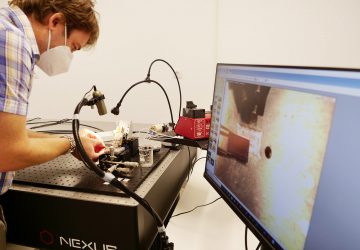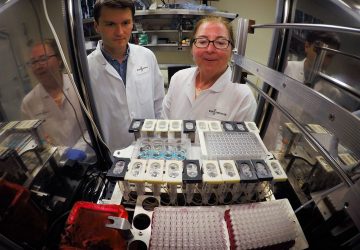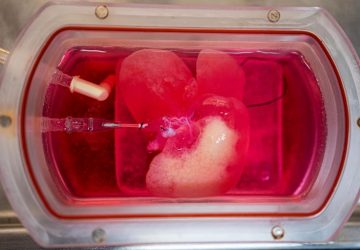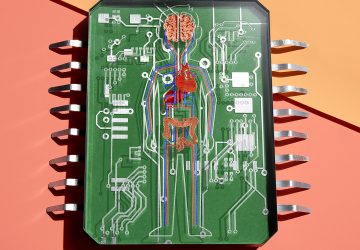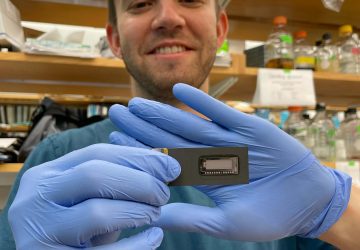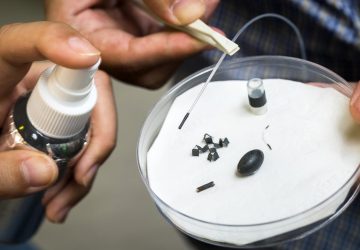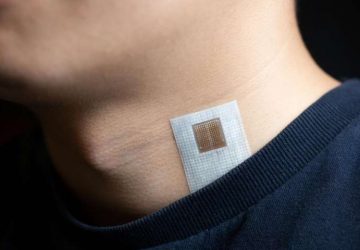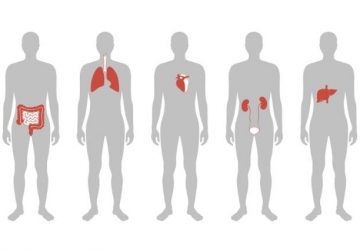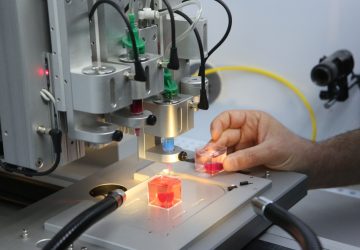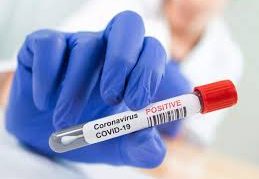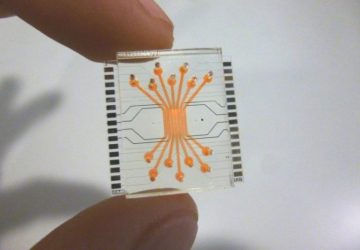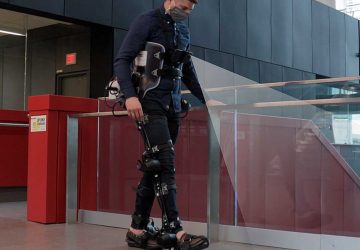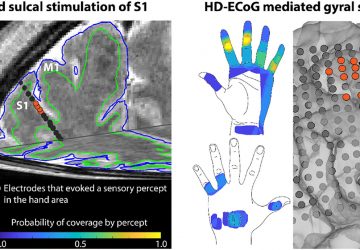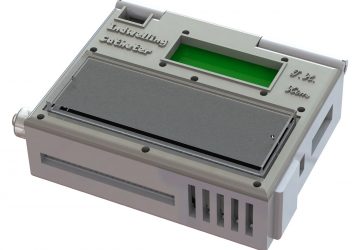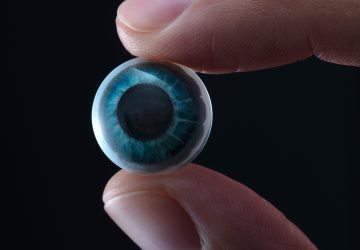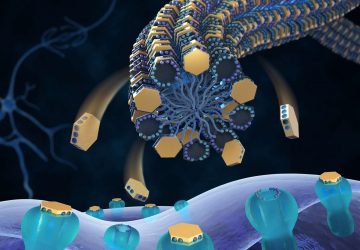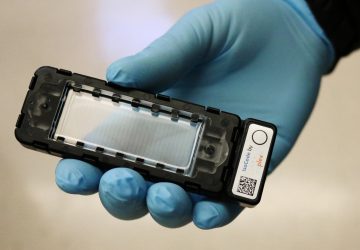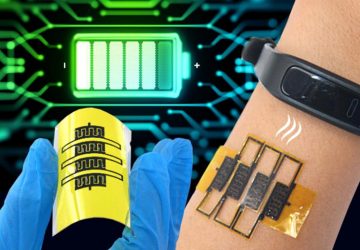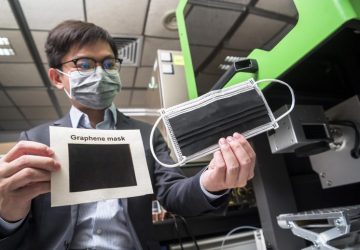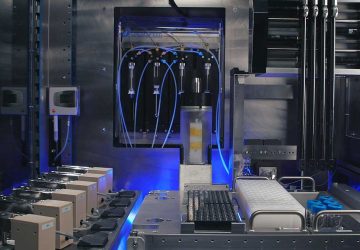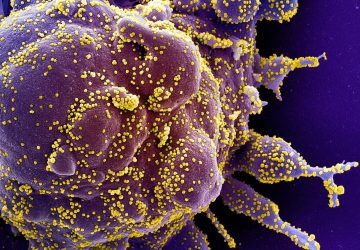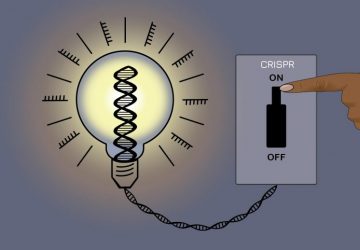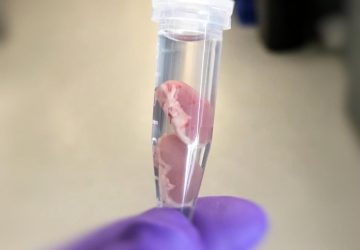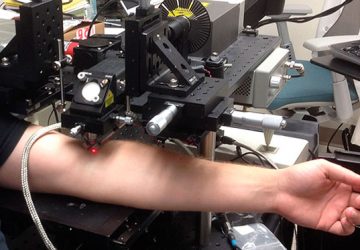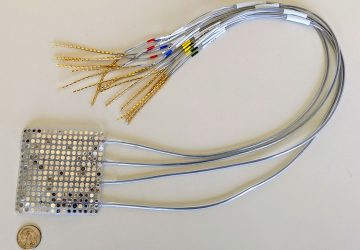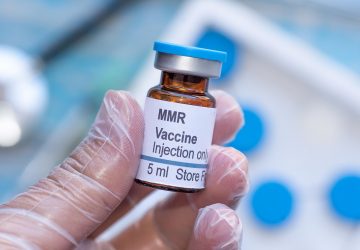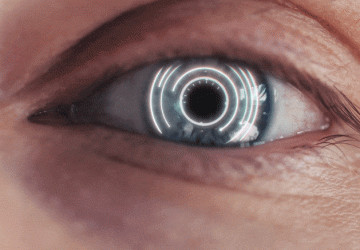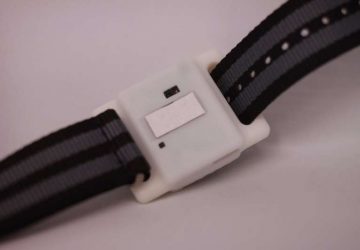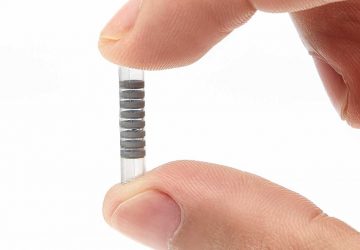The Interrogator system links ten organs-on-chips to predict how a human body metabolizes drugs Scientists have just announced the completion of an eight-year-long project to integrate 10 human organs-on-chips in an automated system to study how drugs work in the body. The technology provides an alternative to testing drugs on humans or other animals. Referred to as the “Interrogator” by its developers, the system links up to ten different human organ chips—miniaturized…
Read MoreWearable Patch Uses Machine Learning to Detect Sleep Apnea
A new device could make it easier to monitor sleep apnea at home Getting screened for sleep apnea often means spending a night in a special clinic hooked up to sensors that measure your brain activity, eye movement, and blood oxygen levels. But for long-term, more convenient monitoring of sleep apnea, a team of researchers has developed a wearable device that tracks a user’s breathing. The device, described in a study…
Read MoreModified cancer drug effective against multi-resistant bacteria
Antibiotic-resistant bacteria are increasingly the source of deadly infections. Scientists have now modified an approved cancer drug to develop an active agent against multidrug-resistant pathogens. Antibiotic-resistant bacteria are increasingly the source of deadly infections. A team of scientists from the Technical University of Munich (TUM) and the Helmholtz Center for Infection Research (HZI) in Braunschweig have now modified an approved cancer drug to develop an active agent against multidrug-resistant pathogens….
Read MoreDARPA Seeks Pathogen Detectors That Use CRISPR to Run 1,000 Tests at Once
DARPA is asking researchers to use gene-editing technologies for portable diagnostics that produce results in 15 minutes The U.S. Department of Defense has put out a call to researchers to develop devices that detect pathogenic threats by performing up to 1,000 diagnostic tests in fewer than 15 minutes. The devices ideally would determine the presence of a pathogen, and useful details about it, such as whether it’s a drug resistant variety, the…
Read MoreNew Tools to Advance Biomedical Research Created by Biological Engineer at MIT
Paul Blainey’s technology platforms have benefited genomics, diagnostics, and drug screening. Microfluidics — the science of manipulating tiny amounts of fluid through channels — has been widely used in fields such as genomics, where it has helped to enable high-speed sequencing. Several years ago, Paul Blainey started to wonder why microfluidics was not used for drug screening, another application that requires analyzing huge amounts of samples quickly. That question led…
Read MoreBlood test could detect lung transplant rejection early
Chronic transplant rejection can be deadly, and recognising it as early as possible is key to achieving the best possible patient outcomes. Thankfully, a new test has been developed that can detect the signs of this condition in lung transplants before any outward symptoms manifest, enabling doctors to act quickly to protect their patients. The test, which has been developed by the Laboratory of Organ Transplant Genomics in the Cardiovascular…
Read MoreDaily exposure to blue light may accelerate aging, even if it doesn’t reach your eyes
Prolonged exposure to blue light, such as that which emanates from your phone, computer and household fixtures, could be affecting your longevity, even if it’s not shining in your eyes. New research at Oregon State University suggests that the blue wavelengths produced by light-emitting diodes damage cells in the brain as well as retinas. The study, published today in Aging and Mechanisms of Disease, involved a widely used organism, Drosophila…
Read MoreCRISPR-BEST prevents genome instability
Even though CRISPR technologies allow for better manipulation of genomes with many positive effects on modern drug development and the discovery of new and better antibiotics, significant problems such as genome instability and toxicity of the Cas9-protein still remain when using the technology. But in a new study published in PNAS, scientists present a new addition to the promising CRISPR toolkit called CRISPR-BEST. This tool operates with an efficient method…
Read MoreSpeeding up the drug discovery process to help patients
An international research team has developed a new strategy that can predict the potential clinical implications of new therapeutic compounds based on simple cellular responses. This discovery was partly led by scientists affiliated with Université de Montréal (UdeM), and represents a major step forward in developing more effective drugs with fewer side effects, much faster than before. The researchers conducted their work at Centre de Recherche de l’Hôpital Ste-Justine and…
Read MoreStrange Respiratory Disease Linked to E-Cigs and Vaping
E-cigarettes are under scrutiny after reports of more than 200 cases of a mysterious illness Update: On 6 September, the U.S. CDC said it is now investigating 450 total possible cases of respiratory illness associated with e-cigarette use. In all cases, patients developed an illness after using e-cigarette products that contained THC, THC and nicotine, or nicotine only. Descriptions of the cases have been published in the CDC’s Morbidity and Mortality Weekly…
Read More

